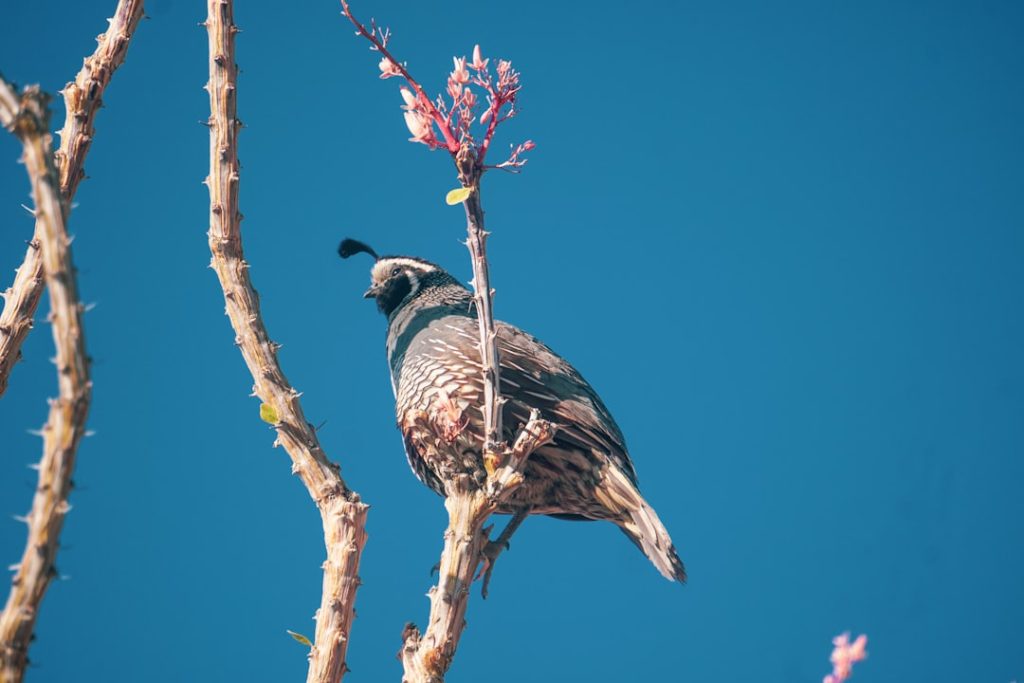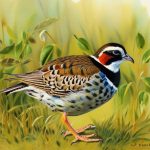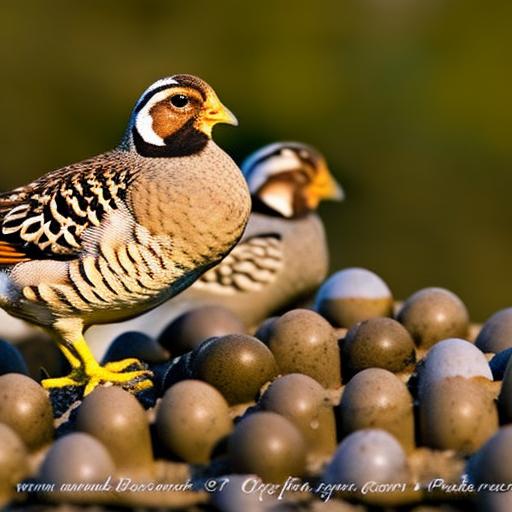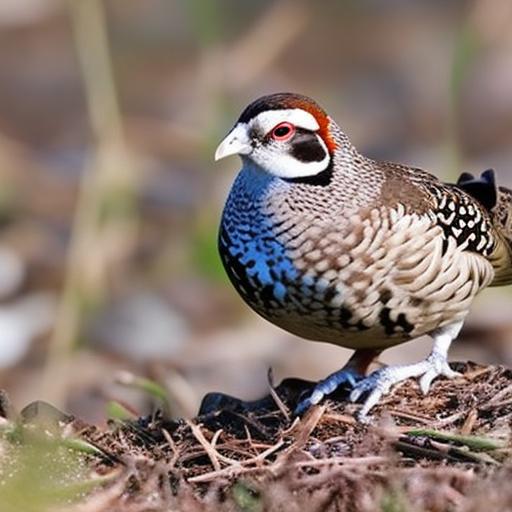Small Coturnix quail, also known as Japanese quail, are popular game birds and are often raised for their meat and eggs. They are small in size, making them easy to raise and manage, and they are known for their fast growth and high egg production. Small Coturnix quail come in a variety of breeds, each with its own unique characteristics and traits. These birds are relatively easy to care for and can be raised in small spaces, making them an ideal choice for backyard farmers and homesteaders. In this article, we will explore the characteristics of small Coturnix quail, popular breeds, care and housing requirements, breeding and reproduction, as well as health considerations for these fascinating birds.
Table of Contents
- 1 Characteristics of Small Coturnix Quail
- 2 Popular Small Coturnix Quail Breeds
- 3 Care and Housing for Small Coturnix Quail
- 4 Breeding and Reproduction of Small Coturnix Quail
- 5 Health and Common Issues in Small Coturnix Quail
- 6 Conclusion and Considerations for Small Coturnix Quail Ownership
- 7 FAQs
Key Takeaways
- Small Coturnix quail breeds are popular for their small size and ease of care, making them a great option for backyard poultry enthusiasts.
- Small Coturnix quail are known for their fast growth, high egg production, and ability to thrive in various environments.
- Popular small Coturnix quail breeds include the Pharaoh, Italian, Tuxedo, and Texas A&M, each with their own unique coloration and characteristics.
- Care and housing for small Coturnix quail should include proper nutrition, protection from predators, and adequate space for foraging and nesting.
- Breeding and reproduction of small Coturnix quail requires attention to lighting, temperature, and egg collection to ensure a successful and healthy flock.
Characteristics of Small Coturnix Quail
Small Coturnix quail are known for their small size, with adults typically weighing between 4-6 ounces. They have a plump, rounded body and are covered in a mottled pattern of brown, black, and white feathers. These birds are ground-dwelling and prefer to spend their time foraging for food on the forest floor. They are highly adaptable and can thrive in a variety of environments, making them an excellent choice for small-scale poultry farming. Small Coturnix quail are also known for their rapid growth and early maturity, reaching full size in just 6-8 weeks. In addition to their meat production, these birds are prolific layers, with hens laying up to 300 eggs per year. Their eggs are small and speckled, with a rich flavor that is prized by many culinary enthusiasts.
Small Coturnix quail are also known for their docile and gentle nature, making them easy to handle and manage. They are relatively quiet birds, making them suitable for urban or suburban settings where noise may be a concern. These birds are also highly social and thrive in small flocks, making them an ideal choice for those looking to raise multiple birds together. Overall, small Coturnix quail are hardy, low-maintenance birds that are well-suited for both novice and experienced poultry keepers.
Popular Small Coturnix Quail Breeds
There are several popular breeds of small Coturnix quail, each with its own unique characteristics and traits. One of the most well-known breeds is the Pharaoh Coturnix quail, which is prized for its high egg production and fast growth rate. These birds have a distinctive brown and white speckled plumage and are known for their friendly and sociable nature. Another popular breed is the Italian Coturnix quail, which is prized for its striking silver and white feather pattern. These birds are also known for their high egg production and are often raised for both meat and eggs.
The Tibetan Coturnix quail is another popular breed, known for its beautiful golden plumage and excellent egg production. These birds are highly adaptable and can thrive in a variety of climates, making them a popular choice for backyard farmers. The British Range Coturnix quail is another sought-after breed, known for its unique coloration and excellent meat quality. These birds have a distinctive brown and black feather pattern and are prized for their flavorful meat.
In addition to these popular breeds, there are also several other varieties of small Coturnix quail available, each with its own unique characteristics and traits. Whether you are looking for high egg production, fast growth rate, or unique coloration, there is a small Coturnix quail breed to suit every farmer’s needs.
Care and Housing for Small Coturnix Quail
Small Coturnix quail are relatively easy to care for and can be raised in a variety of housing setups. These birds require a secure enclosure to protect them from predators, as well as access to fresh water and a balanced diet. When it comes to housing, small Coturnix quail can be kept in a variety of setups, including cages, aviaries, or free-range systems. Cages should be spacious enough to allow the birds to move around comfortably and should be equipped with nesting boxes for egg-laying hens.
Aviaries provide a more natural environment for small Coturnix quail, allowing them to forage for insects and vegetation while still providing protection from predators. Free-range systems allow the birds to roam freely in a designated area, providing them with ample space to exercise and explore. Regardless of the housing setup, it is important to provide small Coturnix quail with a clean and dry environment, as well as protection from extreme temperatures.
In terms of diet, small Coturnix quail require a balanced feed that is high in protein to support their rapid growth and egg production. They also benefit from access to grit and calcium supplements to support strong eggshells. Fresh water should always be available to prevent dehydration, especially during hot weather. Overall, small Coturnix quail are relatively low-maintenance birds that can thrive in a variety of housing setups with proper care and attention.
Breeding and Reproduction of Small Coturnix Quail
Breeding small Coturnix quail is relatively straightforward, as these birds reach sexual maturity at just 6-8 weeks of age. To encourage breeding, it is important to provide a balanced diet that is high in protein and ensure that the birds have access to nesting boxes or suitable nesting materials. Small Coturnix quail are prolific layers, with hens laying up to 300 eggs per year, making them an excellent choice for those looking to raise quail for egg production.
Once the eggs are laid, they can be collected and placed in an incubator or left with the hen to brood. Incubation typically takes 17-18 days, after which the chicks will hatch. It is important to provide the chicks with a warm and draft-free environment, as well as access to a high-protein starter feed to support their rapid growth. With proper care and attention, small Coturnix quail chicks will quickly mature into healthy adults ready for egg production or meat harvesting.
Overall, breeding small Coturnix quail is a rewarding experience that can provide farmers with a sustainable source of meat and eggs. With proper care and attention to their breeding needs, these birds can thrive and reproduce successfully in a variety of farming setups.
Health and Common Issues in Small Coturnix Quail
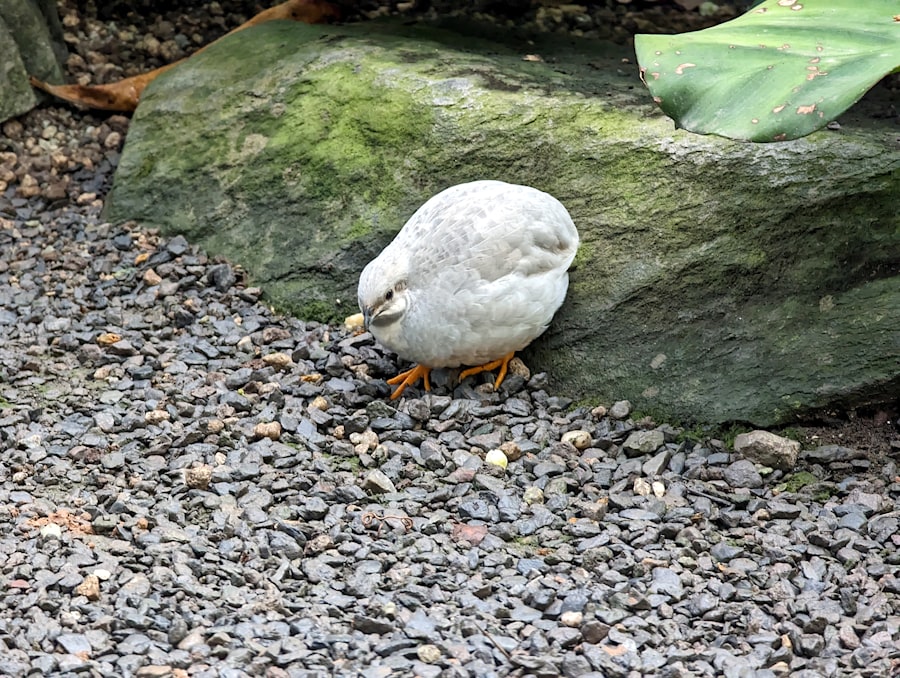
Small Coturnix quail are generally hardy birds that are resistant to many common poultry diseases. However, they can still be susceptible to certain health issues if not properly cared for. One common issue in small Coturnix quail is vitamin deficiencies, particularly vitamin E and selenium deficiencies, which can lead to muscular dystrophy or white muscle disease. To prevent this, it is important to provide the birds with a balanced diet that includes vitamin supplements or access to vitamin-rich foods such as green leafy vegetables.
Another common health issue in small Coturnix quail is coccidiosis, a parasitic disease that affects the intestinal tract. This disease can be prevented by keeping the birds’ living environment clean and providing access to clean water at all times. Additionally, regular deworming can help prevent coccidiosis in small Coturnix quail.
It is also important to monitor the birds for signs of respiratory infections or external parasites such as mites or lice. Regular health checks and prompt treatment of any issues can help ensure the overall health and well-being of small Coturnix quail.
Conclusion and Considerations for Small Coturnix Quail Ownership
In conclusion, small Coturnix quail are an excellent choice for those looking to raise poultry for meat and eggs on a small scale. These birds are easy to care for, adaptable to various housing setups, and prolific layers with high egg production rates. With proper care and attention to their housing, diet, breeding needs, and health considerations, small Coturnix quail can thrive and provide farmers with a sustainable source of meat and eggs.
Before embarking on small Coturnix quail ownership, it is important to consider the space and resources needed to properly care for these birds. Additionally, it is important to familiarize oneself with local regulations regarding poultry ownership and ensure that proper permits or licenses are obtained if necessary.
Overall, small Coturnix quail ownership can be a rewarding experience that provides farmers with a sustainable source of protein while requiring minimal space and resources compared to other poultry species. With proper care and attention, these fascinating birds can thrive and contribute to a successful small-scale farming operation.
If you’re interested in small coturnix quail breeds, you may also want to check out this informative article on chicken coop nest boxes at PoultryWizard.com. It provides valuable insights into creating the ideal nesting environment for your quail, ensuring their comfort and well-being.
FAQs
What are small coturnix quail breeds?
Small coturnix quail breeds are a type of quail that are known for their small size and are popular for their meat and eggs production.
What are some examples of small coturnix quail breeds?
Some examples of small coturnix quail breeds include the Japanese coturnix quail, Italian coturnix quail, and Tuxedo coturnix quail.
What are the characteristics of small coturnix quail breeds?
Small coturnix quail breeds are known for their small size, typically weighing between 4-6 ounces. They are also known for their fast growth and early maturity, making them popular for meat and egg production.
What are the benefits of raising small coturnix quail breeds?
Raising small coturnix quail breeds can be beneficial for their high egg production, fast growth, and relatively low maintenance. They are also known for their adaptability to various climates and environments.
What are the care requirements for small coturnix quail breeds?
Small coturnix quail breeds require a clean and spacious living environment, proper nutrition, and protection from predators. They also need access to fresh water and a balanced diet to ensure their health and productivity.
Meet Walter, the feathered-friend fanatic of Florida! Nestled in the sunshine state, Walter struts through life with his feathered companions, clucking his way to happiness. With a coop that’s fancier than a five-star hotel, he’s the Don Juan of the chicken world. When he’s not teaching his hens to do the cha-cha, you’ll find him in a heated debate with his prized rooster, Sir Clucks-a-Lot. Walter’s poultry passion is no yolk; he’s the sunny-side-up guy you never knew you needed in your flock of friends!

